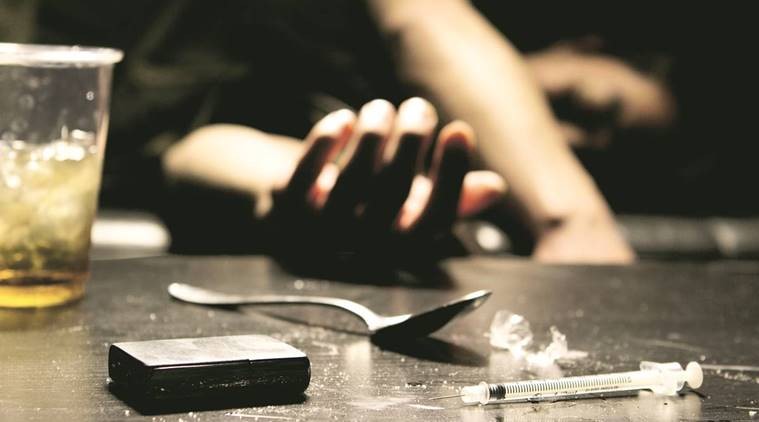 The court had directed the DSLSA on May 3 to conduct these inspections while hearing writ petitions on these “unregulated” de-addiction centres.
The court had directed the DSLSA on May 3 to conduct these inspections while hearing writ petitions on these “unregulated” de-addiction centres.
Asked to perform sexual favours, subjected to sexual and physical torture, treated as slaves, not allowed to contact their families — and deaths allegedly due to torture or wrong treatment.
This is what inmates of drug de-addiction centres in the National Capital face every day, according to an inspection report submitted by Delhi State Legal Services Authority (DSLSA) in the High Court on June 1.
The court had directed the DSLSA on May 3 to conduct these inspections while hearing writ petitions on these “unregulated” de-addiction centres. Responding to the report, the High Court said: “The right of basic human dignity of persons desperately in need of care and treatment is being violated with impunity.”
Official sources said that an inter-sectoral coordination committee, under the Delhi government’s Health and Family Welfare department, is “in the process of notifying minimum standards” for running such centres.
According to the report, the DSLSA inspected 124 de-addiction centres, out of which 28 were found shut. In the remaining 96 centres, the authority interacted with 2,135 inmates — 750 said they were detained involuntarily.
“At some of the centres, the teams constituted by DSLSAs faced security threats and even had to seek police protection to be able to carry out the inspections,” said Sanjiv Jain, member secretary, DSLSA, in the report.
The report includes the case of one centre where five inmates were found to be illegally detained in separate, locked rooms and subjected to physical torture. Most of the other centres did not have adequate infrastructure, including toilets and ventilation, the report found.
Some of the authority’s other key findings in the report include:
SuryaKiran Foundation, Madanpur Khadar: The inmates were “mercilessly beaten” with sticks and faced “abusive filthy language”. “The owner and some of the staff seek sexual favours from the inmates,” said the report adding that there were instances of “physical and sexual torture”. A majority of inmates had “skin infection or allergy” due to unhygienic conditions and some complained about the quality of food, it said.
Aashritha Foundation, Badarpur: Only one toilet and one bathroom for all 54 inmates. An inmate, identified as Imaran, died allegedly due to “extreme physical torture by the centre personnel”. Another inmate, identified as Rehman, “died” allegedly at the centre due to “injection of wrong or overdose of medicine”.
Hamraj Foundation, Narela: A minor was admitted in violation of norms. The infrastructure was not up to standards, with no ventilation facilities or proper treatment. “Inmates are kept like slaves… visit of doctor is an eyewash because no proper treatment is being provided to inmates,” stated the report, adding that inmates were not allowed to meet their families for the first 40 days since they were admitted.
Sheetal Chhayya, Narela: Apart from irregularities similar to those found in other centres, the DSLSA found that the name of the centre was allegedly changed frequently. The name that the panel found at the entrance gate during its inspection was: “Jagat Ganga Hostel and Clinic. Run by doctor M I Shah, MD, MBBS.”
Sharan Nasha Mukti Kendra, Narela: The centre was poorly maintained, with insufficient space. The inmates were subjected to beating and torture. “Danda (stick) was also found under the bed and the centre is just like a prison and the inmates are locked inside for the day and night,” the report said.
Mukti Home Foundation, Jharoda Kalan: The centre was in a “pathetic and poor condition”, the report said. “The bedding were full of smell and bugs. No medical facilities available and inmates were forced to wash toilets and bathrooms,” it said.
While responding to these findings on June 1, a bench of justices S Muralidhar and I S Mehta said such violations of fundamental rights to life, liberty and dignity, as “enshrined” in Article 21 of the Constitution, are “unconscionable”.
“It is paradoxical, too. On one hand, there is a fairly large population of persons in need of treatment of de-addiction and on the other hand, we have several unauthorised and illegally run centres exploiting the situation, charging money and subjecting such persons to inhumane and degrading treatment,” the court said.
The bench ordered Delhi Police to act on the report. “The Delhi Police will proceed in accordance of the law against the centres where such inmates have been subjected to inhumane treatment,” the court said.